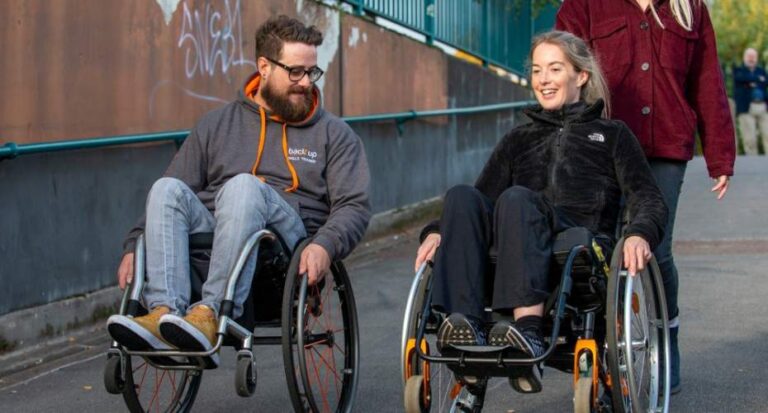Recent ONS figures show the proportion of disabled people who are unemployed and looking for work has increased, while overall unemployment figures remained consistent.
Channel 4 News approached us to chat to the disabled people we support, to learn more about their challenges getting into employment. Nicholas, a participant on our West London Works programme, chatted with reporter Anja about his story, and what more needs to be done to support disabled people back into work.
Shaw Trust has recently launched a report about the impact of IPS, a tailored employment support programme that links work and health. IPS helps people with health problems return to or stay in work, and our report shows that
- Early help while someone is still in work leads to better employment outcomes. 62% of people who are referred to Shaw Trust IPS services while still employed are able to stay in work, taking on average 60 days off sick before returning to work. In comparison for someone who is unemployed when they start the programme, it takes an average of 90 days to find work.
- IPS helps people gain – and stay in – work. 73% of the people Shaw Trust supported into work sustained their job for 13 weeks, and 68% of those sustained it for 26 weeks.
- Work is good for health and wellbeing: 73% of those who found employment showed an improvement in their wellbeing score. 63% of those did not start work still improved their wellbeing and felt more positive about their job prospects.
- IPS participants on our programmes earn an average salary of £32,000 for those gaining employment– just below the national average.
- IPS saves taxpayer money: with an estimated return on investment in year 1 of £2.43 benefits for every £1 spent on an IPS Primary Care participant (often referred by their GP); this accrues over three years to £9.22 for every £1 spent.
- IPS benefits communities by boosting employment, contributing to better social and family relationships, and maximising use of local services.
Read the full report here.




